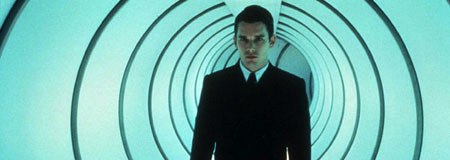
PBS Newshour did a piece on robots. They talked about NASA’s bot pictured above, Asimo, Big Dog, PR2, Robbie the robot and a few others. We didn’t see anything new, but we really do like the coverage getting out there. We also never need an excuse to watch that guy kick big dog around for a while. We know it’ll only be a matter of time before the tables are turned.

Willow Garage, the folks behind PR2, are conducting a survey to see what your favorite robot is. Their list is pretty short, but they did leave a spot for you to add a name. The picture above, is not from willow garage though. This is the picture I got from BotJunkie (we love this site) where I found this story. They didn’t attribute the artist, but I feel they need credit, it is an awesome shirt.
It turns out that it is a t-shirt design available at the chopshopstore. You can see that their eyes are done in glow-in-the-dark material. On a side note, the hackaday store just got glow in the dark material yesterday(as well as a re-design) and will be announcing several new designs in the near future.

I personally inherited several huge boxes full of sci-fi pulp. The robots I’ve seen in these are amazing, ranging from amazingly ridiculous to amazingly awesome. I’ve only just begun scanning in the covers, and plan to post at least one a day. You know what would be awesome though? If I had one of these.












